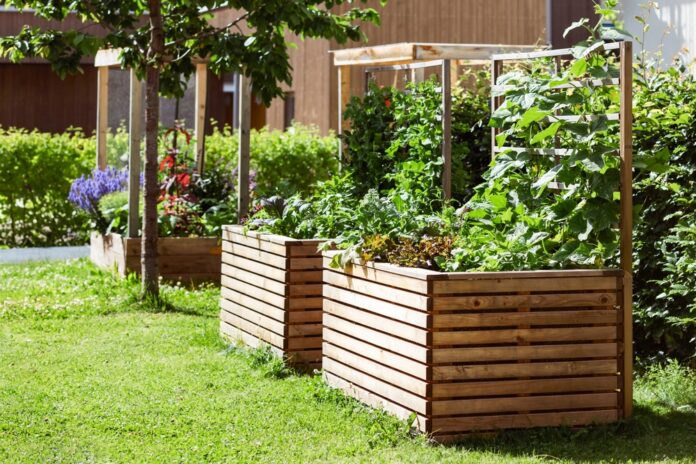Growing your own herbs and vegetables at home is a rewarding endeavor that brings fresh flavors to your kitchen and a sense of accomplishment to your daily life. Whether you have a sprawling garden or just a sunny windowsill, cultivating your own produce is more accessible than you might think. This guide will walk you through the essentials of starting your own herb and vegetable garden, from understanding the benefits to practical tips for successful growth.
The Benefits of Home Gardening
Home gardening offers a multitude of advantages beyond just fresh produce. Cultivating your own herbs and vegetables allows you to:
- Enhance Your Meals: Freshly picked herbs like basil, oregano, and rosemary can elevate the taste of any dish, from simple salads to elaborate stews.
- Promote Health: Many herbs have medicinal properties. For example, rosemary is known for its anti-inflammatory benefits, while oregano contains antibacterial compounds.
- Support the Environment: Growing plants at home helps improve local ecosystems by attracting pollinators like bees and butterflies. Herbs such as lavender and sage are particularly attractive to these beneficial insects.
- Experience Personal Satisfaction: There’s a unique joy in watching something grow from a tiny seed into a plant that sustains you.
Starting Your Herb Garden
Herbs are an excellent starting point for beginners due to their versatility and ease of growth.
Selecting Herbs to Grow
Consider starting with these popular and easy-to-grow herbs:
- Basil: A staple in many cuisines, basil thrives in warm conditions and is perfect for dishes like pasta and pesto.
- Mint: Known for its refreshing flavor, mint grows vigorously and can be used in teas, desserts, and salads.
- Rosemary: This aromatic herb is great for seasoning meats and roasted vegetables.
- Thyme: A hardy plant that adds depth to soups and roasted dishes.
Growing Conditions
Most herbs prefer:
- Sunlight: At least six hours of sunlight per day.
- Soil: Well-draining soil rich in organic matter.
- Water: Regular watering, allowing the soil to dry out slightly between waterings.
Planting Tips
- Start from Seeds or Seedlings: Some herbs, like basil and cilantro, are easy to grow from seeds. Others may be better started from seedlings purchased from a local nursery.
- Container Gardening: If space is limited, grow herbs in pots. This also helps contain aggressive growers like mint.
- Indoor Growing: Herbs can be grown indoors on a sunny windowsill. Ensure they have enough light and avoid overwatering.
Venturing into Vegetables
Growing vegetables requires a bit more planning, but the rewards are well worth the effort.
Choosing Vegetables for Beginners
Start with vegetables that are known for being easy to grow:
- Leafy Greens: Lettuces, spinach, and kale grow quickly and can be harvested multiple times.
- Tomatoes: Cherry tomatoes are particularly prolific and great for small spaces.
- Peppers: Both sweet and hot varieties can thrive in pots or garden beds.
- Radishes: Fast-growing and perfect for succession planting.
Essential Growing Tips
- Sunlight: Most vegetables need at least eight hours of direct sunlight daily.
- Soil Preparation: Enrich your soil with compost to provide essential nutrients.
- Watering: Keep the soil consistently moist but not waterlogged.
- Spacing: Follow seed packet instructions for proper spacing to ensure healthy growth.
Indoor Vegetable Gardening
Believe it or not, you can grow certain vegetables indoors. Leafy greens and herbs are the most suitable for indoor gardens, especially when supplemented with grow lights if natural light is insufficient.
Maintaining Your Garden
Regular maintenance is key to a thriving garden.
- Weeding: Remove weeds promptly to reduce competition for nutrients.
- Pest Control: Use organic methods like neem oil or introduce beneficial insects to manage pests naturally.
- Harvesting: Regular harvesting encourages plants to produce more.
Preserving Your Harvest
When your garden produces an abundance, preserve the surplus:
- Drying Herbs: Hang herbs like rosemary and thyme in a dry, shaded area. Once dried, store them in airtight containers.
- Freezing: Herbs like basil and parsley retain flavor when frozen, especially when mixed with a bit of oil or made into pesto.
- Canning and Pickling: Vegetables like tomatoes and cucumbers can be canned or pickled for long-term storage.
Supporting Your Gardening Journey
Starting a garden is a learning process. Here are some additional tips:
- Learn Continuously: Gardening is about experimenting. Don’t be afraid to try growing new plants each season.
- Connect Locally: Visit local nurseries or gardening groups for region-specific advice.
- Start Small: It’s better to begin with a few plants and expand as you become more comfortable.
Conclusion
Growing your own herbs and vegetables at home is an enriching experience that enhances your culinary creations and brings you closer to nature. With some basic knowledge and a bit of care, you’ll enjoy fresh, flavorful produce right from your garden.


